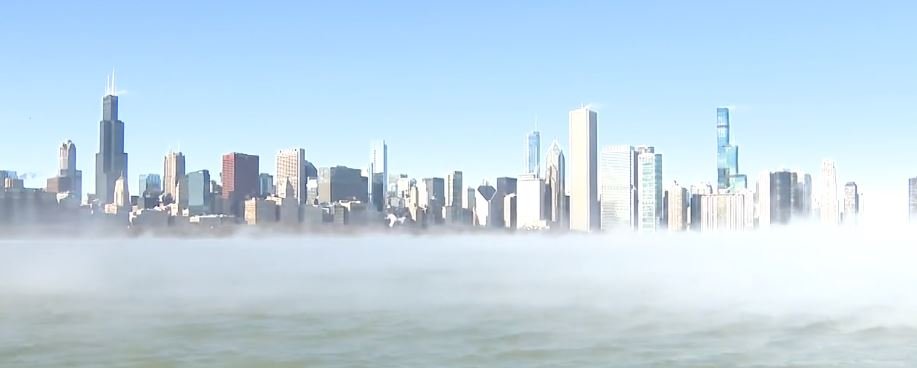Hearing loud pops during the cold snap? It could be a ‘frost quake’

We've been hearing about frost quakes across Chicago Monday – a loud bang
By Tara Molina, Adam Harrington
Click here for updates on this story
CHICAGO, Illinois (WBBM) — We’ve been hearing about frost quakes across Chicago Monday – a loud bang, a jolt, shaking ground, something that seems like a mini-earthquake.
We’ve experienced subzero temperatures plenty of times before in Chicago – and the recent weather phenomena don’t start and end with the steam coming off our lake and river.
Facebook video posted something called a frost quake. Illinois state climatologist Trent Ford said frost quakes are not dangerous – but they are interesting.
“So the scientific term for frost quake is called a cryoseism,” Ford said.
“Cryo” comes from the ancient Greek κρύος – meaning icy cold or frost and also appearing as the prefix in such words as “cryogenics” and “cryosurgery.” “Seism” coms from the ancient Greek σεισμός – meaning an earthquake or a violent storm and also seen in the words “seismic” or “seismometer.” In other words, those ancient Greek roots in the scientific name translate literally to “frost quake.”
And it turns out the weather we are experiencing right now is the perfect, rare recipe of a cryoseism.
“We need the wet conditions – near-saturated conditions – and then we need that cold spell to ‘poof’ really quickly,” said Ford. “When the soils are frozen, and the water within them freezes and expands – because water expands as it freezes – what that can do is actually crack or fracture that frozen ground. And that can experience of either small shaking – in some cases, loud booms.”
In some cases, you might hear just a loud pop.
Frost quakes were also reported during the polar vortex cold snap at the end of January 2019 – during which temperatures got much colder than they will be at any point during this cold snap.
“A ‘frost quake’ can be visually compared to putting a bottle of water in the freezer. When liquid water freezes, becoming ice, it expands,” CBS News climate and weather contributor Jeff Berardelli said in 2019. “If that happens fast enough, it can pop the bottle.”
Cryoseisms are not actually earthquakes – which are caused by tectonic events such as plate shifts or rising magma. Neither of these are involved in cryoseisms.
“We’re not talking like walls shaking, you know, bookshelves tumbling over – nothing like that,” said Ford, “but then also what we can experience is these very loud booms that almost sound like transformers exploding – and it could be that loud. And that is essentially the ground fracturing.”
So if you see a little shake or hear something unusual, Ford says it is nothing to worry about.
“Maybe some folks get startled awake, but we can enjoy what’s just an interesting scientific phenomenon that doesn’t happen all that often,” he said.
Molina is told typically you see or feel frost quakes during the coldest part of the day.
Back in 2019, the Chicago Department of Buildings pointed out that such noises in extreme cold are not necessarily cryoseisms. The department said those loud sounds also can be made by metal or wood in your home, expanding and contracting, because of the cold.
The noise could be caused by house frames, rooftop, floorboards and even air pockets inside your house.
Please note: This content carries a strict local market embargo. If you share the same market as the contributor of this article, you may not use it on any platform.